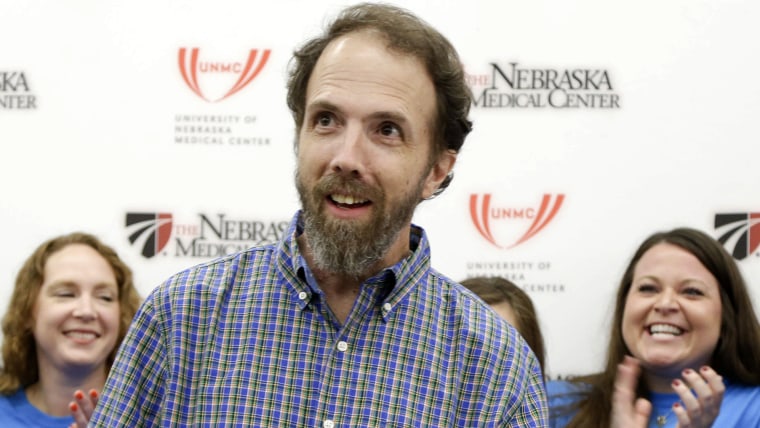An American doctor who was exposed to the Ebola virus in Sierra Leone checked in to the National Institutes of Health hospital Sunday for experimental testing and possible isolation and treatment, the NIH said.
The doctor, who hasn’t been identified, was working in Sierra Leone. If he or she has been infected, it would be the fourth U.S. doctor sickened by Ebola and treated for it. Two — Dr. Kent Brantly and Dr. Rick Sacra — have been treated and released and another unidentified doctor was being treated at Emory University Hospital in Atlanta. Another American, Nancy Writebol, was also treated and released from Emory.

“Out of an abundance of caution, the patient has been admitted to the NIH Clinical Center’s special clinical studies unit that is specifically designed to provide high-level isolation capabilities and is staffed by infectious diseases and critical care specialists,” NIH said in a statement. “The unit staff is trained in strict infection control practices optimized to prevent spread of potentially transmissible agents such as Ebola.” It said the patient poses minimal risk to anyone else.
A spokesperson told NBC News the patient would likely be treated under a protocol for people exposed to dangerous biological agents, including bioterrorism weapons.
“All eligible persons will have an initial screening evaluation to determine the circumstances of possible infectious exposure (e.g., where, when, and how exposed), current medical condition and medical care given, and any aspects of medical history that might be relevant to the exposure,” the National Institute for Allergy and Infectious Diseases says in its description of the protocol.
If it’s infectious, the patient can be seen in the Special Clinical Studies Unit, a hospital ward specially designed to minimize the risk of spreading infection to others. People cannot spread Ebola until they begin to show symptoms, doctors say.
“Upon admission, participants will provide blood and urine samples, have an electrocardiogram to measure heart activity, and have specific tests or procedures associated with the particular infectious agent. Participants who develop illnesses will be treated with the standard of care for known diseases or with experimental measures, depending on the nature of the illness.”
The protocol would give doctors a chance to see what infection looks like from the very beginning of symptoms.
The NIH didn’t give any more details, but to have been exposed the doctor would likely have had close contact with a known Ebola patient’s bodily fluids or an accidental penetration of the skin by an contaminated knife, needle or other sharp object. Doctors and nurses are at special risk in this epidemic of Ebola, which has sickened at least 6,500 people and killed 3,000 of them.